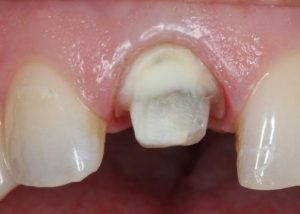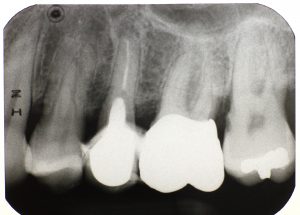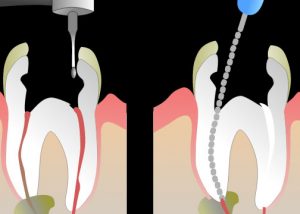Helping Thousands of People Each Year Find Dental Services
- Emergency dental surgery, cavities, general dental care.
- Find immediate help, no insurance required.
- Get relief from chipped, cracked or lost teeth, abscesses or toothaches.
Dental Cysts: Understanding and Treating Cysts
You must watch out for dental cysts (or oral cysts). The pain associated with them can be dramatic. Even more so, they might damage many healthy teeth and could ruin your smile forever.

Depending on the type of cyst and severity level, a fluid-filled cyst or abscess can form in many areas around your teeth and jaw bone and damage the soft tissue.
Fortunately, they can be easily treated provided that they are found soon enough. Be advised that your tooth might have to be removed depending on the type of cyst or how strong it might be.
Do you need help paying for your dental services? Check out our partnership to provide you with a Dental Plan that will greatly reduce the cost of your dental work!
What is a Dental Cyst?
A dental cyst is a sac of tissue in your gums that has some kind of foreign body stuck inside it. It is a form of inflammation that develops after the dental pulp dies off. It grows as the old pulp material starts to wear out. As the cyst develops, the bone structure around the tooth will feel an extreme amount of pressure. It could eat away from the bone and weaken it. This requires a proper treatment as soon as possible.
“Sometimes there is a visible symptom of a dental cyst; sometimes there isn’t. You know those x-rays that you give your dentist a hard time about taking? This is one of the things that we look for on x-rays. Without x-rays, we may never know there is a problem until the cyst starts causing destruction of tissue, bone, and teeth. A full series of x-rays every 3 years allows your dentist to catch cysts before serious damage happens.”
Common Types of Cysts

A follicular cyst may also develop around the lower wisdom teeth or around the crowns of teeth that have not fully erupted properly. This comes as pressure on an erupting tooth causes the follicle to wear out. This keeps blood from flowing properly in the region. This can cause the tooth to weaken in some cases.
A keratocystic odontogenic tumor or KCOT is another cyst to watch for. This is typically around the lower jaw. It causes swelling and can move into areas where teeth should belong in. A KCOT is more likely to develop in an area where a tooth originally grew.
Why Do Cysts Form?
A typical cyst can be found around the roots of dead teeth or around areas where the teeth are not developing properly. A cyst will develop as the bacteria around the dead tooth grow. Sometimes, this might be worse if a tooth has not erupted as well as it should have. This is particularly the case with wisdom teeth. It may also be a genetic issue in some rare instances.
How Are They Found?

How Does It Feel?
A cyst will create an intense amount of pain. It may also cause swelling in the area it is in. This could potentially press other teeth and cause them to wear out quickly. This, in turn, makes it easier for some of those teeth to suffer from extreme pain or even decay.
How Can Cysts By Treated?
Endodontic therapy may be used to treat cysts. This works as the infected pulp in a tooth is cleaned out. This is to keep the risk of a further infection from developing. Endodontic therapy works by using a needle-like material and getting into the root of your tooth.
This is to target the specific area that the cyst is located. This will get into the area and vacuum out the cyst components. This should clear out the dangerous materials that are harming your teeth. Best of all, this is, for the most part, a non-invasive procedure that will not require any intensive cutting.
Can Surgery Work?

This is used to remove cysts that are too deep into the jaw area and cannot be easily reached through endodontic therapy.
This can be a tough procedure that might take weeks for you to recover from. This is due to the need to let the gum area heal up properly. However, it has to work if a safer removal process won’t work.
You will need regular checkups to see that the cyst isn’t growing back. You have to get a good checkup running to ensure that the cyst is safe and will not be too hard to manage.
Does a Tooth Have to Be Removed?

In such a case, a tooth will have to be extracted altogether. The area that the cyst was in will be cleaned out. An artificial bone compound will then be added in the region. This is to clear out all traces of the cyst and to keep it from developing again.
The removal process should allow you to have a chance at getting a new implant added later on. This is provided that the area has healed up and that there are no problems involved in the jaw structure. You have to look carefully at how the implant can be used with care.
Can You Prevent Cysts?
You should be able to prevent cysts from developing by having a healthy dental routine. You must get your teeth cleaned regularly and that any teeth whose nerves die off are treated as soon as possible. The key is to ensure that bacteria is not stimulated or invited into areas where cysts can form.
Remember to watch for what might happen when bearing with dental cysts. The risks that come with dental cysts can be dramatic and could harm you over time. Make sure you get any cyst you develop treated as soon as possible.
Medically Fact-Checked & Written by Our Dental Editorial Team
You can read more about our editorial guidelines by clicking this link and learn more about the Emergency Dentists USA editorial team here.





